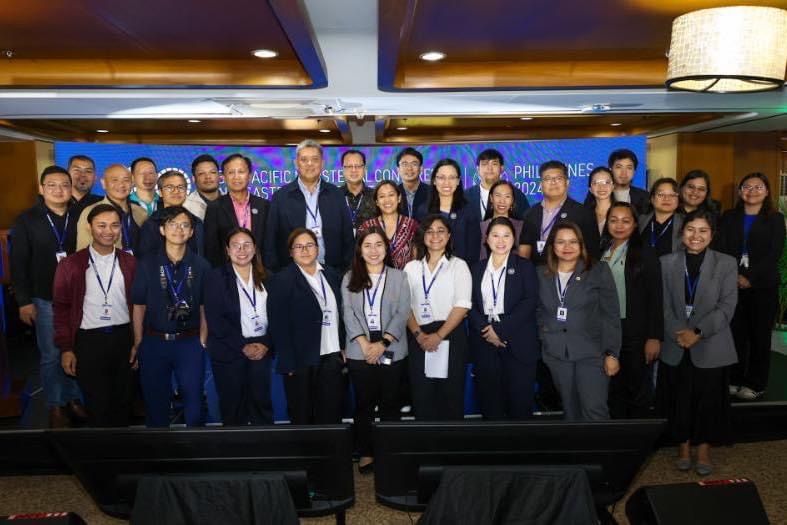Survive, recover, thrive: Mayor Abby calls for LGUs' access to Loss and Damage Fund
"We want them to not merely survive, but recover and thrive in the aftermath of disasters."
Makati City Mayor Abby Binay said this during a disaster resilience forum on Thursday, October 17, as she called upon the government to give local government units (LGUs) access to the Loss and Damage Fund, a financial mechanism to address the unavoidable and irreversible impacts of the climate emergency.

Binay explained that the reality of disasters caused by climate change underscores the need to provide stable funding for local governments that are at the frontlines of disaster response.
“Being in the frontlines of climate impact, local and regional governments should be included in the negotiation of the Fund’s operational guidelines and its technical bodies, to ensure that their needs and contributions are duly considered,” Binay said.
“For local leaders, the window for decisive action is narrowing. The impacts of climate change and disasters caused by natural hazards are no longer future risks—they are crises we face today, affecting lives and livelihoods across our cities,” she added.
The mayor, whose special focus is promoting gender equality as a member of the Advisory Group for Local and Regional Governments of United Nations (UN) Secretary General Antonio Guterres, also cited the importance of ensuring that disaster response and climate change adaptation plans give priority to women, the elderly, and other vulnerable sectors.
Speaking before delegates to the Local and Regional Government Assembly, which is part of the five-day Asia-Pacific Ministerial Conference on Disaster Risk Reduction (APMCDRR), Binay underscored the President's call for more significant investments in disaster risk reduction efforts.
Binay also vowed to actively participate in dialogues to transform Multilateral Development Banks (MDBs) into urban-centric banks that cater to local and regional governments.
“If we are to meet the goals of the Paris Agreement, local governments must be engaged and enabled to take climate action,” she said, adding that fellow local leaders can access several options for “climate financing” to enhance community resilience and preparedness.
Citing Makati's experience, the local chief executive said the city dedicates up to 70 percent of its Local Disaster Risk Reduction and Management Fund (LDRRMF) to pre-disaster preparedness measures.
These initiatives include acquiring state-of-the-art early warning systems and developing flood control infrastructure, which are critical in mitigating the impacts of disasters before they occur.
Makati also uses its funds under the Peace and Order and Public Safety (POPS) Plan to adopt cost-effective technological innovations.
The city's development fund is also reinforced by contributions from Congressional Representatives, while each barangay has its own allocation of resources to support local DRR and CCA initiatives.
Additionally, Makati's efforts are supported by national government agencies which provide funding for construction, maintenance, and upgrading of pumping stations, sewage treatment plants, and drainage systems.
“In Makati, we focus on protecting our most vulnerable sectors – the poor, the elderly, and marginalized communities,” Binay said.
“Makati’s experience underscores the importance of diversified funding strategies in advancing climate and resilience initiatives,” she noted.